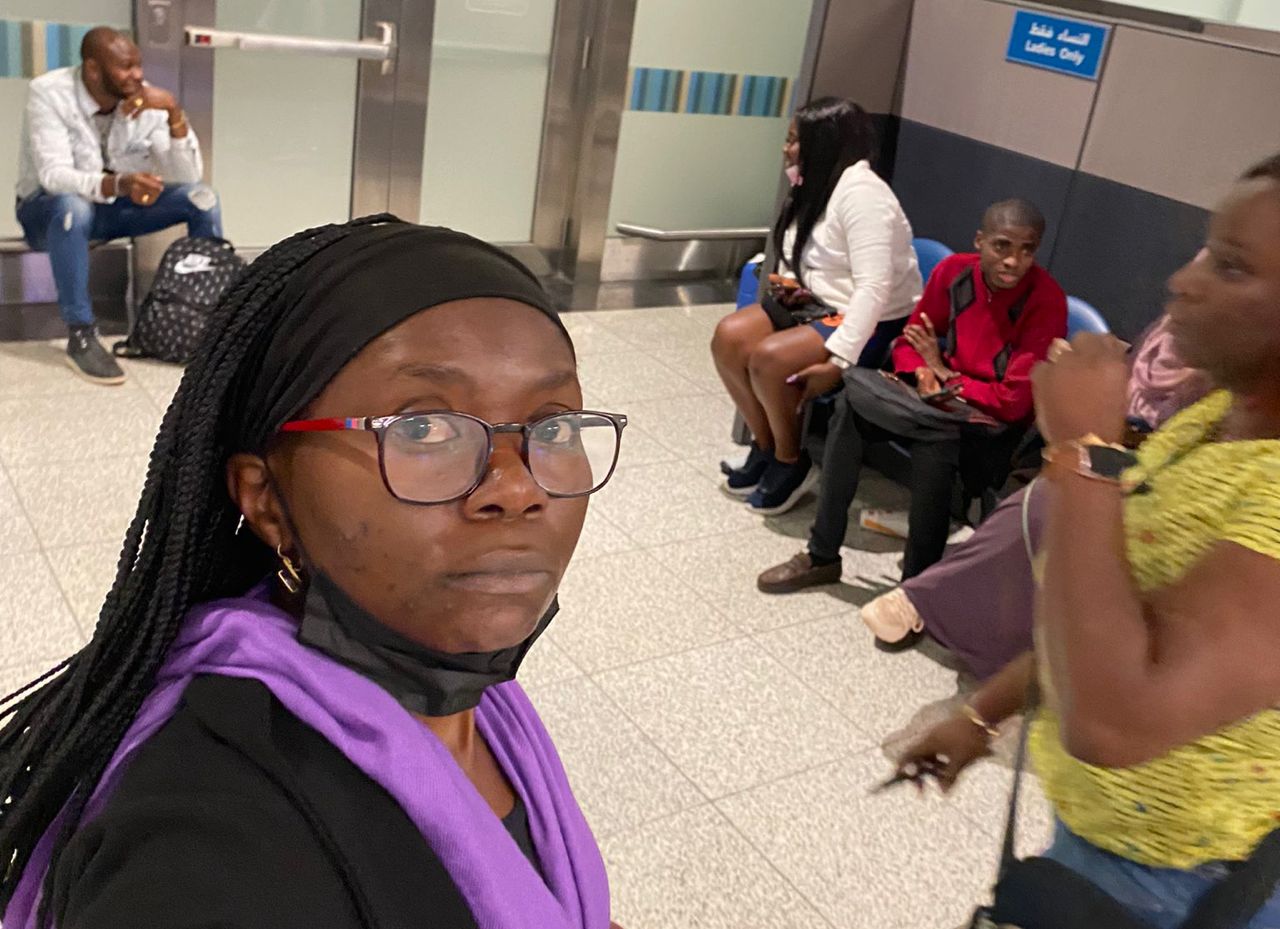
AT home and abroad, the average Nigerian is susceptible to distress and harassment. Across the world, they face adversity; from punitive legal actions, negative profiling and incarceration, to discriminatory travel protocols and violent xenophobia. The recent travails of Dinchi Lar ring familiar. Abandoned to her fate by the Nigerian government, Lar has been incarcerated at the United Arab Emirates via a legal process that critics say lacked fairness. The diplomatic corps should take up this, and every other case of Nigerian nationals in similar distress abroad.
It is the duty of any country to ensure the safety and welfare of its citizens anywhere in the world. This duty extends to both law abiding nationals and even to those who run afoul of the law in foreign lands. The record of the Nigerian government in this regard, with a few exceptions, has been sub-par.
Lar’s ordeal began on August 31, 2022 when she and some other Nigerians were separated from other international travellers and detained shortly after arriving in the Middle-Eastern country.
Recounting her ordeal via a Twitter post, Lar said she and the other Nigerians actually arrived in the UAE with valid visas. Corroborating this, a family member said Lar was later released after several hours of being detained. But surprisingly, she was rearrested by UAE officials when she was about to take the return flight back home, apparently incensed at her social media post where she had uploaded pictures of detained Nigerians.
Though the post was later deleted, the UAE went ahead to try and jail her on charges of breaching the country’s cybercrime laws. While no one should be encouraged to break the laws of their host country, Lar’s case appears muddled. The Nigerian diplomatic mission in the UAE and other relevant agencies should make every effort to provide her with competent legal representation and exert pressure on the UAE authorities.
But this is not just about Lar. There are over 16,500 other Nigerians in foreign prisons, according to the Legal Defence and Assistance Project, an NGO; over 300 are on death row. While most are justifiably jailed for drug-related offences and others for fraud, a significant number are also in gaol on flimsy grounds. Over the years, stakeholders have urged the authorities to protect innocent Nigerians abroad, and ensure the law and due process are adhered to in the cases of those accused of breaking the law.
In Lar’s case, as usual, the Nigerian government’s response was too little, and rather late. Neither the Foreign Affairs Ministry nor the Nigerian Embassy in UAE allegedly made a strong impression on the UAE authorities to ensure fairness. On its part, the Nigerians in Diaspora Commission urged Lar to appeal her judgment and said it would support her.
Most countries however ensure that their citizens get effective legal representation in such situations. Ordinary Nigerians made more sustained efforts to get justice for Lar through campaigns on social media. The national institutions charged with that responsibility should do more for every Nigerian in similar straits.
“The right of a state to afford protection to its citizens while they are abroad is a universally accepted canon of international law”, declares a publication endorsed by the International Court of Justice. The Vienna Convention on Consular Relations 1963 signed by UN member countries permits diplomatic officers to look after the interests of their nationals and make representations to the receiving state if they suffer harm, injury or oppression. Options available and deployed by other countries include “diplomatic representations, mediation, arbitration, negotiation, judicial action, and economic”.
But Nigeria regularly fails its citizens. Uncaring governance at home is extended abroad. In 2021, Itunu Babalola died in an Ivorian prison following her unjust incarceration in an ordeal that began in 2019 with a simple case of burglary. Reports said the Oyo State indigene travelled home to Nigeria from her Bondoukou, Ivory Coast, base to visit her ailing mother. On her return to Ivory Coast, Babalola discovered that her apartment had been burgled and items worth over N300,000 stolen. The police reportedly caught the thief. But thereafter, instead of the normal course of justice, Babalola’s nightmare began. A divisional police officer intimidated her to drop the case because the suspect was his relative. She rejected the offer, preferring to seek justice. This landed her with trumped up charges, jail and eventually, death. Unpalatably, NIDCOM said that it was at the point of intervening when Babalola died.
The serial maltreatment of her citizens by outsiders is linked to Nigeria’s loss of global prestige. Her reputation is ruins, bursting into the global news cycle mainly via negative news — corruption, fraud, terrorism, maladministration, crime and economic under-performance.
Once respected for leading the fight against apartheid in South Africa, mobilising Africa and the West African sub-region for worthy causes, such as peace-keeping and multinational military forces promoting democracy, the country is now associated with negatives. Its citizens bear the brunt, maltreated at foreign entry points, slammed with discriminatory visa/entry requirements, and sometimes subjected to violence.
Between 2016 and 2019, the Senate estimated that South Africans slaughtered 200 Nigerians in xenophobic attacks. Periodically, Ghana traumatises Nigerian traders with prohibitive levies. Many shops there belonging to Nigerians were closed in 2019. In June 2020, two buildings in Nigeria’s High Commission compound in Accra, the Ghanaian capital, were demolished.
Nigeria needs to tidy up at home, and reshape and reinvigorate its foreign policy. The Foreign Affairs Minister, Geoffrey Onyeama, should apply pressure on the UAE ambassador over Lar’s case and the detainment of other Nigerians in the UAE among other diplomatic options that have proved effective globally.
When Canada detained Meng Wanzhou, a Chinese tech executive, who was wanted in the United States, China retaliated by charging two Canadians with espionage. Shortly after Canada released Meng last September, China also released the Canadians.
The American, European and Australian governments among others go to great lengths to provide legal support and secure the release and safe return of their nationals charged with crimes abroad, detained or unfairly treated. Nigerian authorities should adopt this standard.





